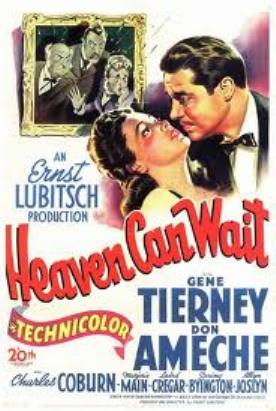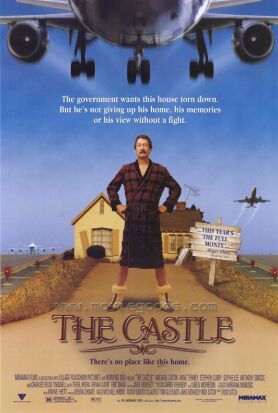Meet Joe Black
James Cameron has a lot to answer for. By making the top grossing film of all
time a three hour plus extravaganza he has convinced the money men that it’s OK
to break the two hour barrier so long as you’ve got a picture that’s going to
pull the teeny-boppers, with plenty of spending money and free time and no
homework to occupy it, into the cinemas. If Leonardo Di Caprio could do it for
Titanic, must have reasoned Frank Biondi at Universal Pictures, why
should not Brad Pitt do it for Meet Joe Black, a much too-long remake of
Death Takes a Holiday (1934) which starred Fredric March and was based on
a popular play by Alberto Casella, which was adapted into English by Maxwell
Anderson.
The original at least raised some serious questions, as the reason for
Death’s assuming human form was to find out why people fear him, a question of
intrinsic interest. This Death, offers only a general curiosity as his reason
for his taking the body of Mr Pitt, supposedly freshly killed in a traffic
accident. “I have a certain function to perform, and it takes up most of my
time,” he says. “I sometimes speculate on what I don’t have room for.” Room is
one thing he has plenty of in this movie, but we are not much the wiser at the
end of it.
Anthony Hopkins, who plays the tycoon whom Death has come for, and who buys a
little more time by showing him around planet earth—or at least New York
City—steals the show. But even he hasn’t got much to do, really, and his
playing the Victorian papa at the prospect of having Death as a son-in-law is
merely silly. Martin Brest, the director, and his writers (four of them are
credited) apparently didn’t think much dialogue was necessary when they had the
eloquence of Brad’s silent but soulful gaze into the eyes of his love interest,
Claire Forlani, to rely on. Miss Forlani is unquestionably a beautiful woman,
but she takes the actressy virtue of an expressive face to absurd lengths. She
has hurt eyes. And a hurt mouth. Probably hurt ears too, but you can’t bear to
watch any more of her, once she gets her hurt eyes and her hurt mouth working
together. You can only take a gun and put her out of her misery.
Neither she nor Mr Pitt seems to have much to say. You would think that Death
would have some stories to tell. Whatever the drawbacks to keeping company with
him, at least he must be an entertaining dinner guest. But this Death is a man
of few words. He is, moreover, a man used to being watched. This is where it
becomes difficult to separate Death from Brad Pitt. Death acts like a movie
star: soft-spoken, self-assured, always the most important figure in the room.
We are meant to watch him mime the discovery of the senses, as he has assumed a
human body for what we are supposed to believe is the first time, and the movie
boils down to the looks on his face as he discovers the delights of peanut
butter or sexual intercourse—and on her face as she tries to convey the
pain of loving a guy who isn’t, well, quite all there.
Come to think of it, maybe the film is a parable. Maybe Death and movie stars
really do have a lot in common. Certainly Death and this movie have the common
property of lasting forever, or feeling as if they do. Surely even the teeny
boppers must get tired of looking at Mr Pitt as the clock ticks on for three
hours? But whether because the movie went on for too long, or because Pitt isn’t
androgynous enough, or because it wasn’t the most brilliant stroke of casting
against type to put him into the role of the Grim Reaper—whatever the
reason, poor Joe Black didn’t live up to box office expectations and Mr
Biondi is now seeking other employment. I hope his firing serves as an example
to other studio heads and that they will think twice or thrice before making us
sit through a three-hour movie again.
Discover more from James Bowman
Subscribe to get the latest posts to your email.





